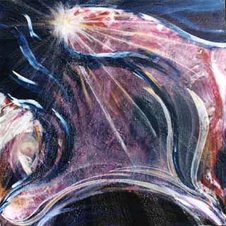I have always had a really hard time with those with a "victim" mentality; who thinks that the whole world is against them; who work the system and blame everyone else for their troubles.People tend to ascribe their chances of future successes or failures either to internal or external causes. Persons with an internal locus of control see themselves as responsible for the outcomes of their own actions. These individuals often believe that they control their destiny, and are often observed to excel in educational or vocational realms. Someone with an external locus of control, on the other hand, sees environmental causes and situational factors as being more important than internal ones. These individuals would be more likely to see luck rather than effort as determining whether they succeed or fail in the future, and are more likely to view themselves as the victim in any given situation. http://en.wikipedia.org.
This has not been me to a large extent. But in some ways, it has. I tend to be a slave to my emotions. I let people make me mad. When I do that, I am giving them power, rather than me being in control of my own emotions. I have never really learned to make wise choices. I have never really seen myself as an indepent woman. So these are the things that I am currently working on.
This is good stuff:
What is self-control?
Self-control is a set of behaviors which:
- Accepts the reality that the only thing in life which you can successfully change and control is yourself.
- Keeps in check all self-destructive, addictive, obsessive, compulsive, irrational, and unacceptable behaviors.
- Gives you a sense of personal mastery, autonomy, and competency over your own life.
- Is under your control and power to direct and orchestrate with no need for interference or manipulation from others.
- Makes you the master of your own destiny because it keeps in check those barriers and obstacles which are a threat to your overall success in life.
- Is a middle ground between perfectionism and laxity in self care.
- Results in your life having a balance and focus by helping you to cope with new challenges in life as they come.
- Helps you to keep your over-emotional responses in check or moderation.
- Helps you to open yourself up from nonfeeling or pulled-in emotions so that you can have a healthy emotional life.
- Is the foundation for healthy coping and contributes to your accepting personal responsibility for your life.
- Keeps your life in moderation, helping you to avoid extremes in any direction.
- Is the focus of the efforts to let go of the uncontrollables and unchangeables in your life so that you can concentrate on yourself.
- Eliminates the need for you to be manipulative, helpless, fixing others, intimidating, overdependent or a caretaker of others.
- Helps you to be detached from others and to keep your relationships in a healthy balance of give and take.
- Reflects your inner desire to grow up into a mature, responsible adult.
What are the negative effects of not maintaining self-control?
If you cannot gain self-control in your life, you could:
- Focus all your attention on trying to control, fix, or rescue other persons, places, and things and divert your attention from your own needs.
- Suffer the negative impact of your out of control behaviors such as alcoholism, chemical dependency, overeating, compulsive sex, addictive relationships, compulsive shopping, gambling, smoking, etc.
- Become deeply depressed and despondent over your weakness and inability to get your life into "check'' or 'balance.''
- Prefer to be overly dependent on other helpers, caretakers, fixers, and rescuers to give your life the control it needs.
- Fall prey to an overly perfectionistic and idealistic belief system in which no matter how well you get things in order you see them as being imperfect and not good enough.
- Lose control over the emotional boundaries you need to maintain from becoming over enmeshed or controlled by others.
- Become lost as to where you begin and end and where others in your life begin and end in relationship to you.
- Find yourself responding to situations in your life either in an overly emotional and hysterical way or in a withdrawn, pulled-in and non-emotive way, with neither response being healthy or appropriate at the time.
- Find it impossible to become detached from people, places, or things who are toxic or unhealthy for you.
- Find yourself in a state of powerlessness to effect changes to get your life into moderation or balance.
- Fall into the trap of learned helplessness and convince yourself that you are not capable of taking care of yourself and thus allow your life to get more and more out of control.
- Seek out caretakers, fixers, or rescuers to help you solve your own problems and get your life under control.
- End up convinced that there is no way you can get your life into balance because the amount of work, effort, energy, and resources needed are too great an investment just for you when there are so many other people, places, and things on which you could better focus attention.
- Experience even lower self-esteem because of your inability to believe enough in your worth and value to take action to get your life into control.
http://www.coping.org/control/selfcont.htm
I am grateful for my friend who brought this to my mind. This ssite has presented me with a lot of good info. I CAN make positive changes! It is NOT hopeless.





No comments:
Post a Comment